1) Hi Paul, Thanks for joining us. What was your introduction to computers and particularly the C64? What was your introduction to programming?
I’d always been fascinated with computers and computing since I could read; I used to digest all my Dad’s electronics magazines, filled with info on how to build your own computers – but they were way out of our league.
I first laid hands on a PET computer, where I played my first computer game Nightmare Park
which was from a type in listing; this was at a friend’s Dad’s office where he had a bank of PETs to run his loan business back in 1980.
The first computer I actually owned was a ZX81 that my Dad lovingly put together from a Sinclair kit (it was cheaper that way). On that I learned BASIC and very quickly after that Z80 machine code. From there I went through the TI99-4A, and the Vic-20 where I first started to release commercial games, and that led me to the new kid on the block
that was the C64.
2) After a chance meeting with Peter Clarke you were pretty much the reason why we heard his music in games. What can you tell us about this chance meeting? And what followed?
It was one hell of a series of events; around ‘81 a new video hire shop had opened across the road from the house where I lived. Every time I went in there (which was a lot!) I used to babble on about how they should computerise their video booking system. To cut a long story short, about six months after they opened I got a phone call from the MD of the shop – and he asked if I could pop in to see him when I had a minute - me, thinking I’d forgotten to take a video back wandered straight over.
Turns out he was opening a new business in town to sell computers and computer games and wondered if I would be interested in working there during weekends and holidays (I was still in school at this point) as I knew about computers
. No brainer for me, I got to be surrounded with all the latest computers and got to choose what games we stocked! Suffice to say I snatched his hand off.
The shop became quite the draw for local enthusiasts, college students and wannabe game makers, so I’d be this teenage kid giving people advice on what computers to buy, how to program them and what software to use.
When I hit 16 the chap that owned the video shop, computer shop and now a travel agent (!) decided he wanted to form a software development company too, so that really pushed me into wanting to write games for a living. I would be tinkering around with game ideas on the machines in the shop; a couple of guys from the local college used to pop in and provide support (and graphics).
Now, the one thing I loved about the C64, and indeed what made me buy one was the SID chip. Forbidden Forest melted my mind and so I was always fascinated with making the sound chip sing. Alas I had (and still have) the musical talents of a sponge ball so whilst I could tinker around modulating the inputs to the sound chip, Greensleeves was as far as I got!
Every week this tall chap who looked a lot like Phil Lynott from Thin Lizzy used to pop into the shop; he was well into his games and we got talking about music, our love of the music of the arcades and he told me his stories of being a gigging musician. We became very friendly, frequenting the arcades and he told me about his exploits in music on the C64 - at the time I’d just got in a new bit of software called Electrosound which was the closest thing to Rob Hubbard at the time as it actually did some post modulation; pitch bends, patch swapping drums etc, so I told him about this and he bought a copy.
The following week, he comes in with a floppy disk. He gets me to boot up Electrosound and loads up this version of Abba’s Money, Money, Money
that he’d knocked up
– he told me about what beautiful musical compositions Abba did and presses play. Out of the speaker comes this stunning rendition of Abba with all these lovely little after touches. WTF!
Over the next few weeks he brings in more and more pieces of original music including one called Ocean Dries Up
that starts as a piss take of Martin’s Ocean Loader music (little did we know in a couple of years’ time it would be in Martin’s music driver, playing on Ocean titles and known as Ocean Loader III).
At that time, I was working on a little C64 game not dissimilar to Star Force and he rocked up one day with some title music for it. Not long after this the sales at the shop crashed and the business was liquidated, but Pete an I kept in touch and I suggested we have a pop of doing something like WE M.U.S.I.C; I’d write drivers and Pete could compose the music and see if we could get any work… And so the collaborations began.
3) What can you tell us about your programming history pre-ocean?
Around ’81 I pushed out a version of Pac Man on the Vic-20 having just seen it on holiday in Florida – in hindsight it was pretty awful, but it ran on an Unexpanded Vic, played reasonably similar to it and was all in machine code! It can’t have been too bad as two months into its release cycle NAMCO sent out a cease and desist to the publisher! From there I published a few games on the TI99 through the local computer shop and then through their newly formed publishing label.
Having met Pete, I started writing music drivers and landed us a couple of gigs with Superior Software and Elite Systems where I provided the drivers and Pete delivered the music in spades.
4) How did you get involved with Ocean - And what was the first day like?
Serendipity! Whilst doing the music for Repton 3 for Superior Software, they asked me if I’d mind going to the programmer’s house to get the music incorporated, so I popped into Manchester to meet the game’s author Richard Kay. He was ex-Ocean and just about to form his own game dev company Software Creations
. The meeting was fateful, and he asked me to go work for him as his first programmer. Upon getting this job I was chatting to my aunt about what I was doing and telling him the story about Rick and Ocean, when she drops the bombshell, Ocean? Your Uncle Les’ nephew works for Ocean, he’s doing pretty well there
– she meant THE Dave Collier! The next day she rings him up, tells him about me, about the games stuff, about Rick Kay (whom Dave worked with) and the next thing I have an open invite to go have a look around 6 Central Street.
Software Creations was just up the road from Ocean, so one evening, I popped in, Dave meets me, takes me into the dungeon and shows me Terra Cresta. We get talking about scrolling, multiplexing, tape protection and all sorts and he says, Barbara didn’t tell me you knew your stuff
– calls over Gary Bracey as says Gary can we give this lad here a job?
Twenty minutes later, and rather unexpectedly, I had a job offer!
The overly keen, socially inept but mildly talented 17-year-old, said Work for Ocean, are you kidding me? HELL YES!
on the spot without thinking of Creations – it took me a long, long time to make up with Richard for that!
The first day was a whirlwind; I got to meet all these legends; I was tersely related to the king of C64 Dave Collier and thus as his little protégé was shown around to Martin Galway, Joffa Smith, Mike Lamb – all these absolute legends
.
I was a kid in the candy store, desperate to impress with all these peers who were out and out game dev legends. I was buzzing by the time the day ended.
5) How much creative freedom did you have in designing games at Ocean? Was you told what to design? Or how Ocean wanted it?
With film and TV licenses we were pretty much left to our own devices; we got told we have the license to this film, here’s the script, off you go, and left it to the dev team – usually a programmer and an artist to design, develop and ship the game (we even wrote the manuals!) Gary Bracey would chip in with ideas as he was a proper dyed in the wool gamer and film buff all rolled into one, but the core flow of the game was pretty much left to us. It was incredibly trusting!
6) You and Peter go back before Ocean. What can you tell us about working with Peter again? And were there’s times you worked together closely on a project?
I think it’s pretty well documented (see Pete’s interview) that we had a bit of a falling out over Ocean and the Double Take soundtrack – totally my fault I hasten to add – so things were a little tense for a while especially when someone within Ocean, who shall remain nameless, really fanned the flames between us (it was 20 years before we figured it all out and realised we’d been duped).
With that being said, we still travelled to and from work together every day, had lunch together and played games all the way through our time there. It was an odd old time; we didn’t see much of each other in the office as Pete was locked away with Martin in his little fish tank office and I was down the corridor doing my thing.
7) Martin Galway and Peter Clarke worked at Ocean at the same time. Did you have any input into who would do the music for your games?
Alas we had zero influence over what musician worked on each game as normally you had the choice of Martin or Martin – but once Pete came into the fray there was choice and some senior devs started asking for Pete or Martin specifically.
8) Did working at Ocean feel like a family? Or was it full of politics? Did you enjoy working there?
Hands down I loved working there. I was in amongst one of the finest development crews that you could have wished to be with, and we learned so much from each that other I wouldn’t have swapped it for the world. That said, there were politics, in fighting, incredible pressure to deliver, and a bunch of late teen / early twenty egos fuelled by hormones working in a crammed underground office for 12 hours a day, seven days a week. Here’s the thing though; I left Ocean 29 years ago and I’m still friends with virtually every single person I worked with – we all grew up together, we learned together, I guess we helped create an industry together.
9) You designed Freeload. Who can forget the awesome music and the slowly appearing graphical loading screen. Of all the loaders across the c64 Freeload is by far the most memorable. Were you given the task of writing it or was it something you decided to do yourself? What was the importance of including some of the most memorable SID tunes for the loading screen?
Ahh good old Freeload! I swear my gravestone will have flashing borders on it! So, Freeload was something that I’d written a few years prior to joining Ocean, I was really into game protection at the time and indeed it was one of the things I spoke with Dave Collier about at our first meeting; the fact I could stop Freeze Frame in its tracks. I’d also managed to make the loader have a free running loop – everything was timed under interrupts so I could guarantee the load routines would always win
the CPU battle so I was left with a free running loop that I could safely do other things with (The Free
bit of FreeLoad) – I had simple games playing, smooth scrolling, sprite animations, music – you name it.
When I joined Ocean the loaders were done by a chap named Bill Barna who was one of the early in house developers. A couple of months after joining Bill suddenly left and there was some hoo-har over the loader itself (and the fact no one really understood it). Martin mentioned that I did tape protection and from that day on I was the Ocean Loader guy. Up until the rise of the really good freeze cartridges, switching to Freeload apparently added a few days delay in the games getting pirated which meant a tidier profit for the powers that be, so I must’ve done something right.
Sometimes if you felt a particular title was a bit special you could coax Jon or Matt to knock up a new piece of music just for it (which would then go on a heap of titles for a year or so). Occasionally a game would have such nice music that we’d swap it into the loader (as was the case with Fred Gray’s Mutants music)
10) You wrote Jonathan Dunn’s music player. What was the reason for the change of player? How closely did your work with Jonathan on this?
I’m not really sure how it happened if truth be told; I’d worked with Colin Porch on the music driver for Double Take and just after this Martin announced he was leaving Ocean to go freelance. Up to this point the only other person that understood – really understood – Martin’s player was Pete, so I thought it might be a nice idea to write something for the new guys to use – but with 100% of their input.
I first devised it with Gari Biasillo who was one of our new game programmers who was also a talented musician, so as I tinkered to create a music format he wrote little tunes with it to test the player out, not long after Jon joined the team bursting with ideas about post modulation (I still call the drum code Dunny Drums – as they were all his idea and I think they are some of the best sounding synthesised drums on the C64).
I worked on the first few iterations of the player ensuring that the data was small and the update was fast. Once it was embedded into the team (at this point the incredibly talented Matt Cannon also joined with Keith Tinman over at Special FX starting to use it) I let go of the reigns and Jon ran with it – once the framework was there he did all kinds of post modulation effects with it. I bobbed back into its world again for Run the Gauntlet providing and NMI based fourth channel drum player (which was a sequenced re-working of the speech player I did for Robocop)
11) Working alongside four of the most well known composers on the c64. Peter Clarke, Martin Galway, Jonathan Dunn, Mathew Cannon must have been interesting. What can you tell us about these guys and how they differed to each other and their differing ways of working?
I always found it fascinating that, no matter what player they used you could always tell from the arrangements who did what. Even though every composer’s driver had its own sound due to how they specifically did their modulation functions they all had their own compositional styles.
Martin was always about the sounds over anything else – trying to make the SID sound like the various synths of Jarre and Tangerine Dream, and boy he did that so well (even though his syn-drums were crap).
Peter was all about the composition, I always loved the musicality
of his work – he always could get unique sounds out of the SID, but it was the general foot-tappiness
of all his pieces that blew me away. I still love listening his work to this day.
Jon was a music generating machine (he was really good at SFX too, which was rare) – I do not know where he got all his composition ideas from, he could rattle out different tunes in different genres at a rate of knots. You have Jon to thank for a lot of different music on the loaders (I used to get bored listening to the same thing over and over in the mastering lab, so used to plead with Jon for something new!) He always delivered!
Matt was a bit of an unsung hero, I loved his work; musically he was like Pete – all about the composition – he had a way of explaining what he wanted something to sound like in a way that I could implement it in code.
12) You coded most of the copy protection at Ocean on the c64. Did you realise at that time that with the invent of copy protection piracy changed from a casual affair (kids swapping games in the playgrounds) to a more organised one where crackers were getting as much credit and the game designers themselves? Maybe inadvertently compounding the problem?
I always found the whole copy protection thing a game of cat & mouse – initially it was about stopping the tape-to-tape copiers which I had had some success with, then it was about stopping the backup tools – little cottage industry companies that sold generic transfer programs in the back of Personal Computer Weekly, and finally it turned into something altogether more ominous – with professional printed packaging. I went on a few raids with F.A.S.T and saw first hand how organised these gangs could be, but more shocking it was generally a couple of kids in their bedrooms stacked to the rafters with tapes and duplication machines.
One of the things I realised early doors was that there was literally nothing you could do to stop the crackers – if code could be loaded into the computer you must be able to intercept it. What was critical was how long you could delay the process for – how many days a title was on the shelves before a cracked copy found its way around the world.
I used to get sent letters and received phonecalls from hacking groups explaining (well, mocking!) how they’d gotten around the latest loader, or how they’d acquired a copy of the un-protected code before we’d even shipped.
At one point a particularly unpleasant gent that worked upstairs at Ocean, upon me reporting that I’d just had a call about a copy of one of our games leaking to the crackers, accused me of being the leak, as I was "the only one who could have done it. The hours I put into trying to make more money for the company by protecting their software – I could’ve swung for him. Mr Bracey kindly called him a few choice names and I walked away seething.
13) What was your experience with some of the methods employed by ocean to stop piracy? Especially on the 16 bit machines where it really started becoming an issue?
On the C64 there were a few layers – first was a system to try to prevent tape-to-tape copying that exploited the automatic gain control on the cheap twin deck hi-fis of the time. Second was a few rounds of encryption in the loader itself, which used timers to rotate the encryption keys based on how long parts of the code took to execute. It would do things like load over the core loader loop itself, so if someone changed the loader code at a couple of different points it would load the original code back in thus removing the hack. The final layer was tricks to try and stop the freeze cartridges; that was purely cat & mouse, trying to come up with ways of first detecting their presence and when that failed trying to block the interrupt from the freeze button.
Alas with later versions of Expert Cartridge and Action Replay IV they pretty much had me on the ropes; I was no match for hardware that was by this time tantamount to invisible until it wasn’t!
When 16 bit came along, piracy really upped a gear, and whilst I tinkered with all kinds of strange skewed disk formats we generally left that to the likes of Rob Northern and his CopyLok system which utilised a custom driver for expensive mastering hardware – the kind of stuff you couldn’t just buy off the shelf without a big bank balance – and even then you needed Rob’s custom firmware.
Alas the problem with all this was that, on the whole, protection was a last minute thing, so whilst the disk format was really difficult to copy, the actual checks in game to verify whether it was original was generally a quick call and test to validate things which were easily crackable. It was only when a developer worked with Rob to scatter his protection checks obfuscated throughout their code – delaying when they responded to it being a pirate copy that things really worked.
14) You were working on music drivers, loaders and copy protection. Was that what your signed up for at Ocean? Wouldn’t you have liked to concentrate on designing more games? Was this frustrating?
When I joined, they knew I was a Technical guy – a tinkerer. I came up with novel routines to do things (I guess I foreshadowed being the engine guy
by a decade or so). Nonetheless I was hired to make games, and the first game I made for them was utterly terrible, so in many ways doing the Tape loaders for a bit let me get over that and then I got involved with games like Combat School and Operation Thunderbolt because I’d built up a huge reusable library of routines – multiplexors, animation sequencers, level tools.
It’s not like they didn’t have an army of some of the best 8 and 16 bit developers to fall back
(lol) on. It didn’t bother me too much at the time, I quite liked providing technology for games – I really pushed implementing real time 3D in the late eighties; we didn’t do much 3D in house at the time, but they invested in wizards like D.I.D with F29 and EPIC which served them well.
Once I left Ocean I got straight back in the game programming saddle for a long while (if anything to be sure I could still do a game from start to finish!).
15) So, You were at Ocean when the transition from 8-bit machines to 16-bit machines. What was that like? Did you have to go back to the drawing board and start again or was it fairly seamless?
I think the transition suited some developers more than others; if you came from Amstrad and Spectrum you were used to plotting your own sprites and pre-shift scrolling, so the transition to ST for example was an easier thought exercise – you needed to learn a new assembly language and the different way colour was handled, but the idea of drawing, masking and clipping sprites to a C64 programmer with all the hardware doing it for you was a different kettle of fish. A lot of the C64 guys found the transition to Amiga easier as there was a lot of hardware to hold your hand.
16) It must have been a bit disappointing when the Atari ST was released with so much promise only to find it had so many faults like the backward YM sound chip and the lack of hardware scrolling? What was your experience with that and indeed the Amiga as well?
Me, I loved the ST, not because it was particularly brilliant (that soundchip was dire – I had to write drivers for it!) – but more because it was difficult – you had to think outside of the box to make it do a decent game. As the ST hit the ground running
first a lot of companies in the early days knocked out a nice looking, but fundamentally clunky (burst scrolling, 15 fps) game on the ST and then did a cheap re-arrange the screen layout
port for the Amiga. You had this incredibly capable hardware running like a dog, just with better music. At least internally at Ocean we tried to push the ST as hard as we could and then re-worked all the scrolling and drawing routines to use the Amiga Hardware.
17) So, Your time at Ocean comes to an end. Why did you leave?
A few reasons really – first, it was time. I’d done the same thing a lot and we were transitioning to the console hardware; Gameboy, NES and SNES and despite putting together lots of really nice prototypes of new IPs on this new hardware I just wasn’t getting work that I wanted to do.
Secondly, EA were now in the UK and were treating their developers like rock stars, they literally tripled my salary in less than 12 months – that’s not because they were paying ridiculous salaries, more that Ocean weren’t paying that well and, at the time, had no royalties to help bolster the meagre salary.
Finally, a lot of my peers and friends had started to leave as they were getting similarly disillusioned, it stopped feeling like home. Within a couple of years, most of the dream team
had left for pastures new, the company had moved to new offices, were partly owned by Infogrammes and were running on a rudderless ship. Once Gary Bracey left there was no one to steer the craft.
18) From one major player to another - Electronic Arts. What were the differences in working practices between them both. What was the whole experience like?
I prefix this with I loved my time at Ocean – it was the start of an industry and no one really knew how to do it. By the time EA came onto the scene, and being an American run business it had a much more corporate feel to it – at the time it was run by Trip who worked hard but also played hard – he realised to make fun games you had to have fun making them.
It was night and day. Yes, there were more corporate hoops to jump through, but you were generally shielded from that by upper management; as long as you were delivering what you promised on time and to quality they just provided you with an environment to have fun in.
I hasten to add this was in the mid 90’s before the dark times, before EA Spouse exposed what they had become.
19) What is Paul Hughes doing today? Still in the games industry?
I still do games technology – I license out code and provide the odd firefighting service for when a game is up against it, but these days I work in the world of forensics, and court utilising VR to simulate and train – using high end game technology. It is absolutely fascinating being involved in this behind the scenes
stuff in the criminal justice system, whilst at the same time I get to do game engine technology! It is a marriage made in heaven.
20) And Lastly, Thanks for time Paul - Are you are Lego’d out?
I do miss the LEGO games. I’m looking forward to the new LEGO Star Wars game as I know nothing about the game at all. I thoroughly enjoyed working on the original LEGO titles, but for now, I’ll stick to building LEGO sets.
Imagine a world without Paul Hughes and his Freeload/Sound Drivers? Whilst I'm sure Martin Galway, Johnathon Dunn, etc would have still gone on to make fantastic music on the c64 the soundscape and the loading experience would undoubtably have looked very different. People like Paul hughes made significant advancements on the first steps to a multi-million pound gaming industry revolution.
Neil Carr (Tas)
Also, Pete - where is that SID with your cover of "Money, Money, Money"? HVSC cannot be called complete without it! :-)


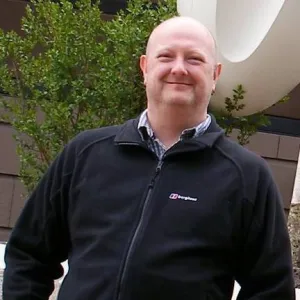
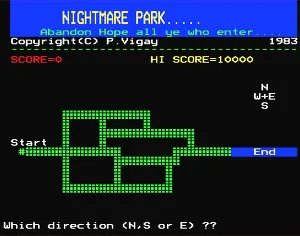
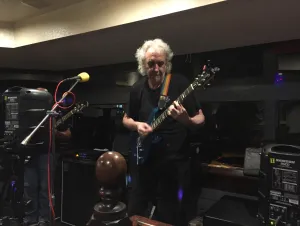
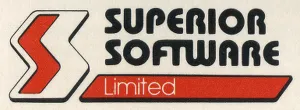
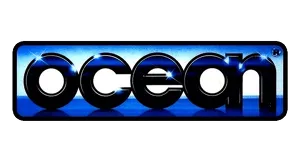
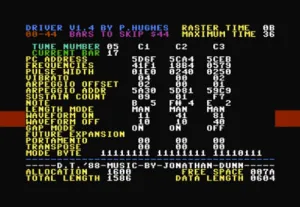
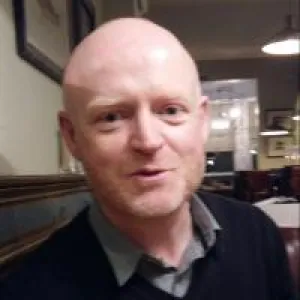
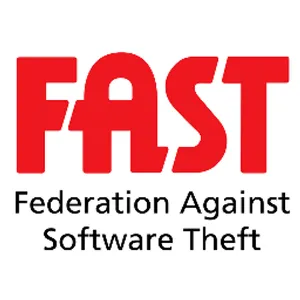
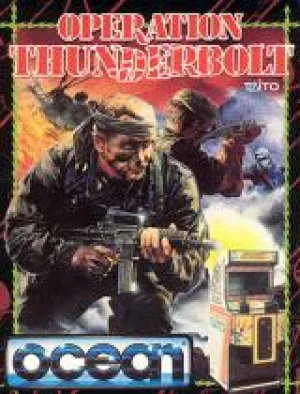
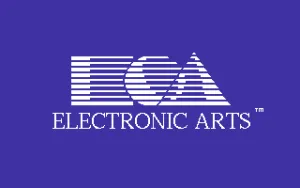










Comments